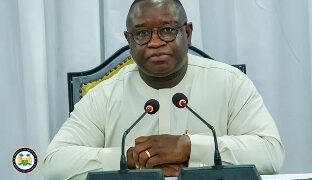BY – Abdulai Junior Bangura (Publish 13 July 2024)
In a society where the principles of equality and human dignity are enshrined in global human rights frameworks, it is disheartening to witness the persistent discrimination faced by the LGBTQ community in Sierra Leone. Despite progress in some parts of the world, LGBTQ individuals in Sierra Leone continue to face barriers in accessing essential public services, such as healthcare, education, housing, and justice, due to deep-seated societal stigma and institutional bias.
This publication calls on the international community, led by influential nations, to take bold action to ensure that LGBTQ people everywhere have access to education, healthcare, and public facilities in Sierra Leone. It seeks to shed light on the urgent need for inclusivity and fairness in the provision of public services, emphasizing that equal access is not a privilege but a fundamental human right.
LGBTQ individuals in Sierra Leone face systemic discrimination fueled by cultural, religious, and legal opposition.
Healthcare workers often refuse treatment to LGBTQ individuals, labeling them as “sinners” or “immoral.” In schools, LGBTQ students are bullied by their peers, depriving them of an education. Landlords and housing providers discriminate against them, leaving some LGBTQ individuals vulnerable to homelessness. The justice system, which should protect all citizens, often turns a blind eye to violence and harassment against LGBTQ individuals.
This exclusion violates fundamental rights and perpetuates cycles of poverty, ill health, and marginalization within the LGBTQ+ community.
Every individual, regardless of sexual orientation or gender identity, deserves respect and dignity. Denying public services undermines the very essence of human rights.
Excluding LGBTQ individuals from healthcare services increases the risk of untreated illnesses, including HIV/AIDS, creating a public health crisis that affects the entire population of Sierra Leone.
Inclusive education ensures that LGBTQ students can learn in a safe environment, equipping them with skills to contribute to Sierra Leonean society.
Discrimination limits the potential of LGBTQ individuals to participate fully in the economy of Sierra Leone, hindering national progress.
Inclusive societies are stronger, more peaceful, and more prosperous.
Discrimination divides communities and fosters hostility across Sierra Leone.
Personal Testimony
“My experience with discrimination against LGBTQ+ individuals was heartbreaking.
A community nurse refused to treat an LGBTQ+ individual, saying she does not treat “people like that.‟ The individual had to leave without receiving care. It was a moment that revealed the pervasive stigma and lack of compassion in our society.”
Stories like this are not isolated incidents; they reflect the harsh realities faced by LGBTQ+ individuals across Sierra Leone. These experiences highlight the urgent need for systemic change to ensure that no one is denied their rights simply because of who they are.
The Call for Change
Sierra Leone must embrace equality by:
Repealing discriminatory laws.
Launching public education campaigns to reduce LGBTQ+ stigma.
Training service providers to ensure non-prejudiced access.
Empowering human rights institutions to monitor discrimination.
Engaging religious and cultural leaders to promote inclusion.
These steps are essential for fostering an equitable society.
The fight for LGBTQ rights in Sierra Leone is not just about legal recognition; it is about ensuring that every individual has access to the services and opportunities they need to live a life of dignity and fulfillment.
As a nation, Sierra Leone must rise above prejudice and embrace the values of compassion, equality, and justice. It is time to create a society where public services are accessible to all, regardless of sexual orientation or gender identity.
By championing the rights of the LGBTQ community, we are not only upholding human rights but also building a more inclusive, equitable, and prosperous Sierra Leone for future generations.
Together, we can create change because equality is everyone’s right.





















